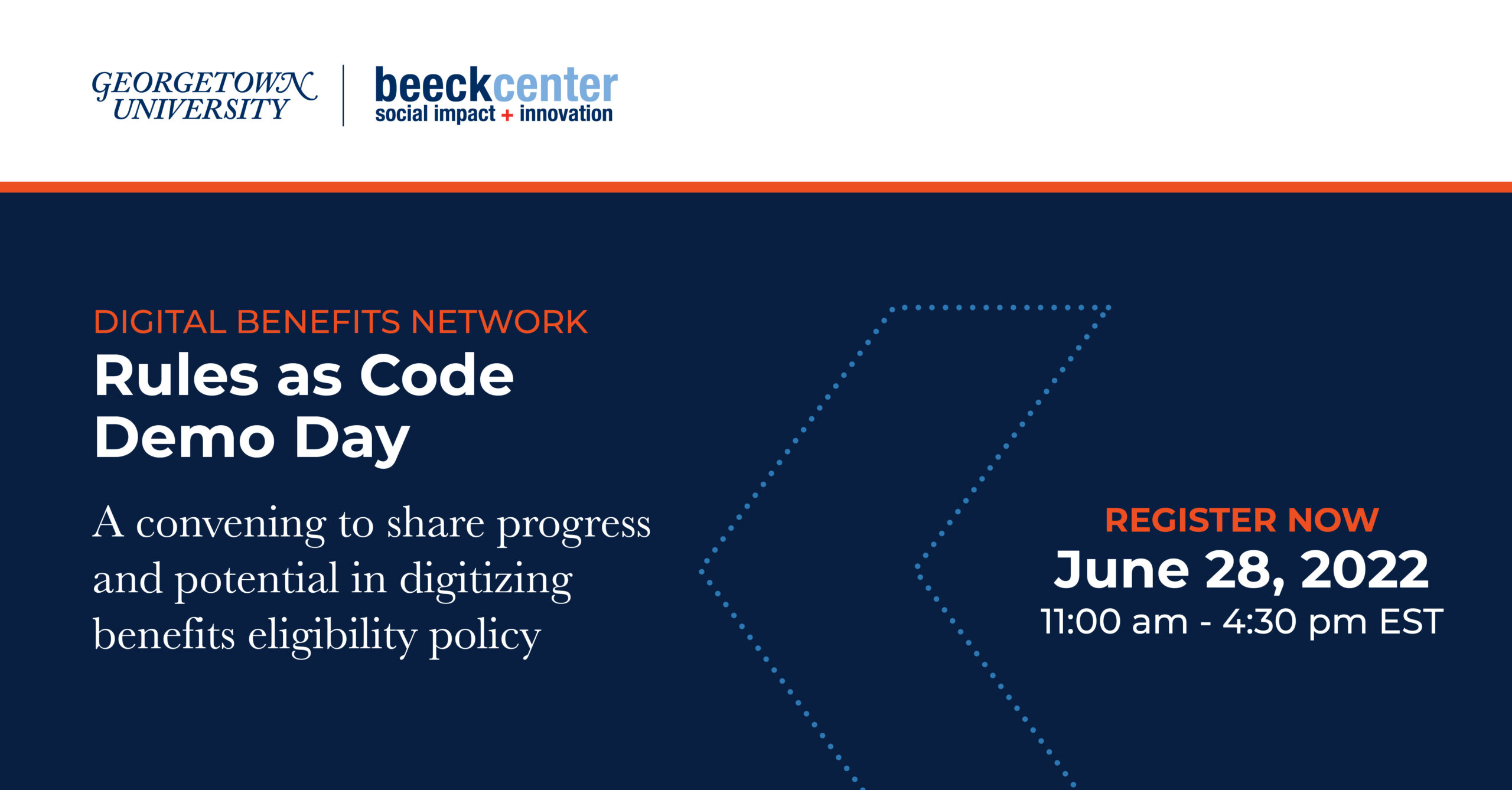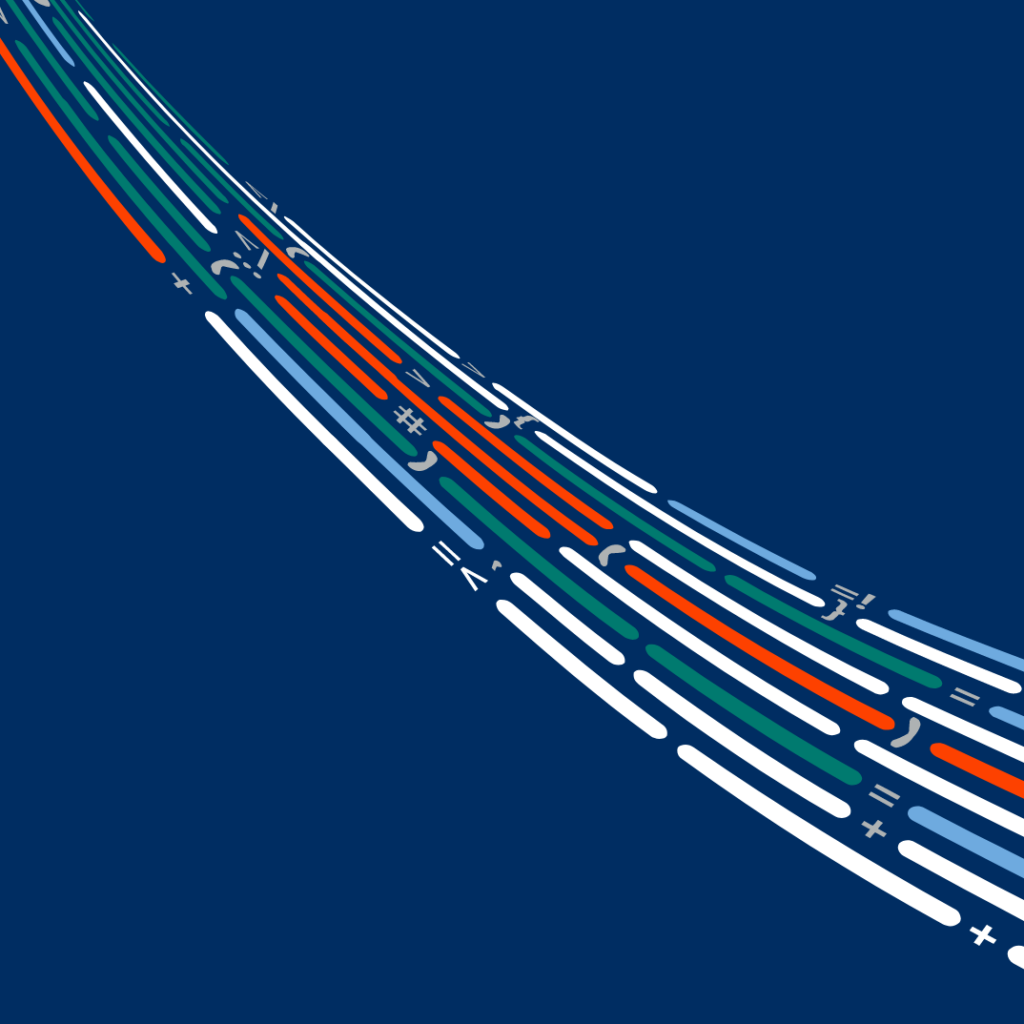Building on the February 2022 report Benefit Eligibility Rules as Code: Reducing the Gap Between Policy and Service Delivery for the Safety Net, the Digital Benefits Network at the Beeck Center for Social Impact + Innovation at Georgetown University invites you to live online-only demonstration sessions of projects and code that are advancing the digitization of eligibility rules and the delivery of public benefits. After the partner demos, we will collaborate in a problem-solving session on how to advance rules as code for the U.S. social safety net.
Rules as Code Demo Day: Sharing progress + potential in digitizing benefits
11:00 am - 4:30 pm ET

Why Rules as Code for Public Benefits?
In the United States, social safety net benefits eligibility is mired with complex rules across programs. This system creates barriers to access for individuals seeking to address their needs, as well as for the agencies and delivery organizations tasked with interpreting the legislation, regulations, and policy for the delivery of benefits in their jurisdiction.
The burdens created by the complex rules are encoded in the digital systems used for delivering benefits. For example, for individuals seeking benefits, there will always be a level of complexity to the questions asked in the forms in order to meet the requirements established by the rules. And for states, local governments, and organizations creating digital services, as they interpret the program rules in order to write code in software used for both eligibility pre-screening and final enrollment determinations. Not only does this duplicate efforts across locales and organizations, but it also leaves much of the rules interpretation and testing for accuracy up to the technology implementer.
Based on research with U.S.-based and international governments, delivery organizations, and field experts, recommended approaches to improve the digital delivery of social safety net benefits include utilizing a “rules as code” approach to improve the digitization of legislation and policy documents. We believe that this will incentivize states, local governments, and delivery organizations to integrate open source rules code and data feeds, and create new policy tools.
The rules as code movement is nascent, but quickly growing and proving successful in other countries. It is imperative that the United States begin formalizing an approach to adopting rules as code for the safety net to lessen the gap between policy and service delivery in digital systems.
Please contact digitalbenefits@georgetown.edu if you have any questions.
